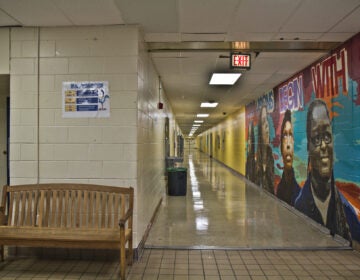Andrew Jackson Elementary no more: South Philly school celebrates new namesake, education trailblazer Fanny Jackson Coppin
The K-8 school was renamed for a formerly enslaved woman who became a Philadelphia teacher and principal.
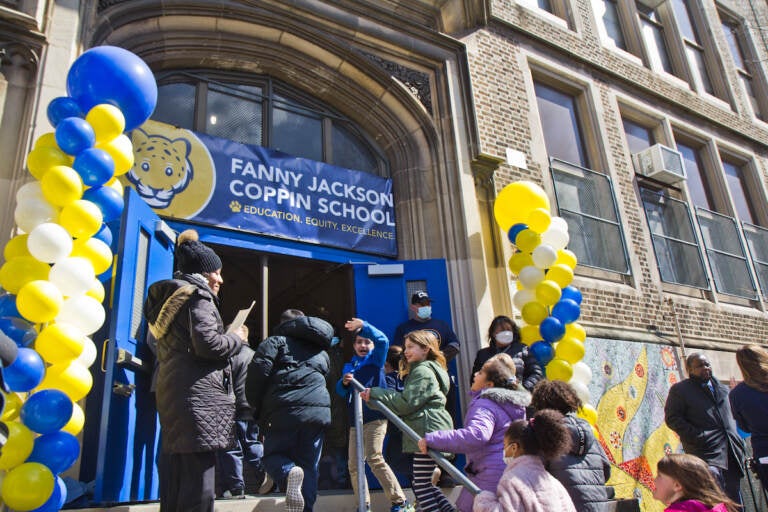
Students of Fanny Jackson Coppin elementary school in South Philadelphia reenter the school after the renaming ceremony on March 29, 2022. (Kimberly Paynter/WHYY)
When students returned to the elementary school at 12th and Federal last fall, it had a new name: Fanny Jackson Coppin.
Now, it has a new sign to match.
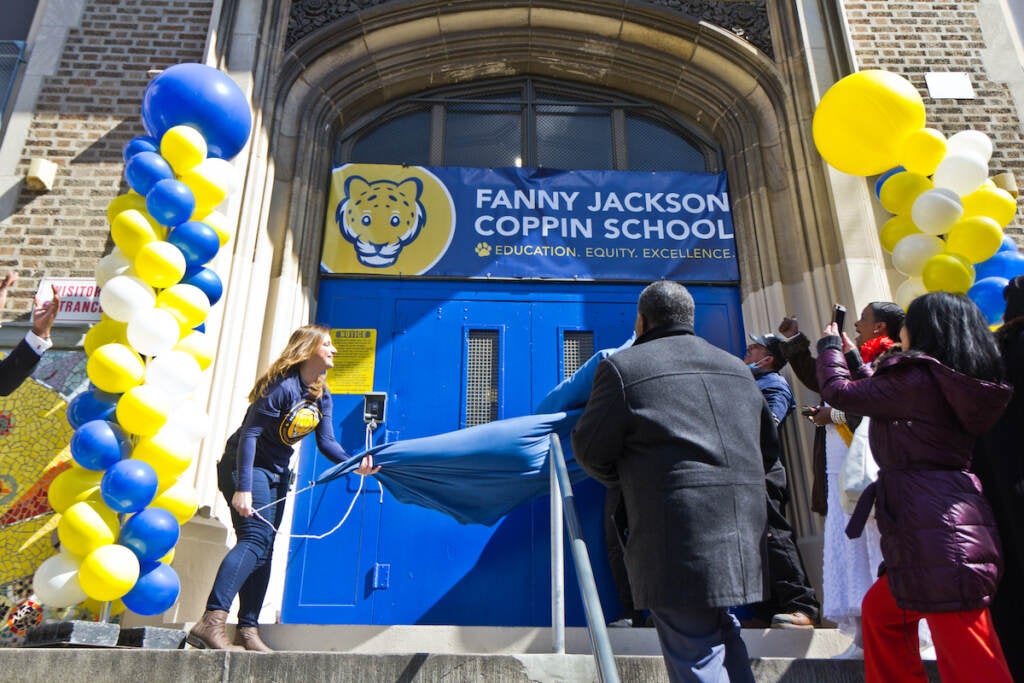
The school community gathered for an unveiling ceremony on Tuesday, cheering as principal Kelly Espinosa revealed a blue, white and yellow sign honoring the new namesake, a woman who was born into slavery and became a trailblazing Philadelphia teacher and educator.
“Our students have been excited learning about who Fanny Jackson Coppin was, what her legacy was, how she was an advocate, she was a leader,” Espinosa said. “We are excited to see how our students invest more in our school community with this change.”

The South Philadelphia school, formerly known as Andrew Jackson Elementary, was officially renamed last June. Community members had pushed for several years to remove the president’s name, part of a nationwide movement to rename schools whose namesakes have racist histories. Jackson owned enslaved people and forcibly removed indigenous people from their land, leading to thousands of deaths. He had no significant connection to Philadelphia.
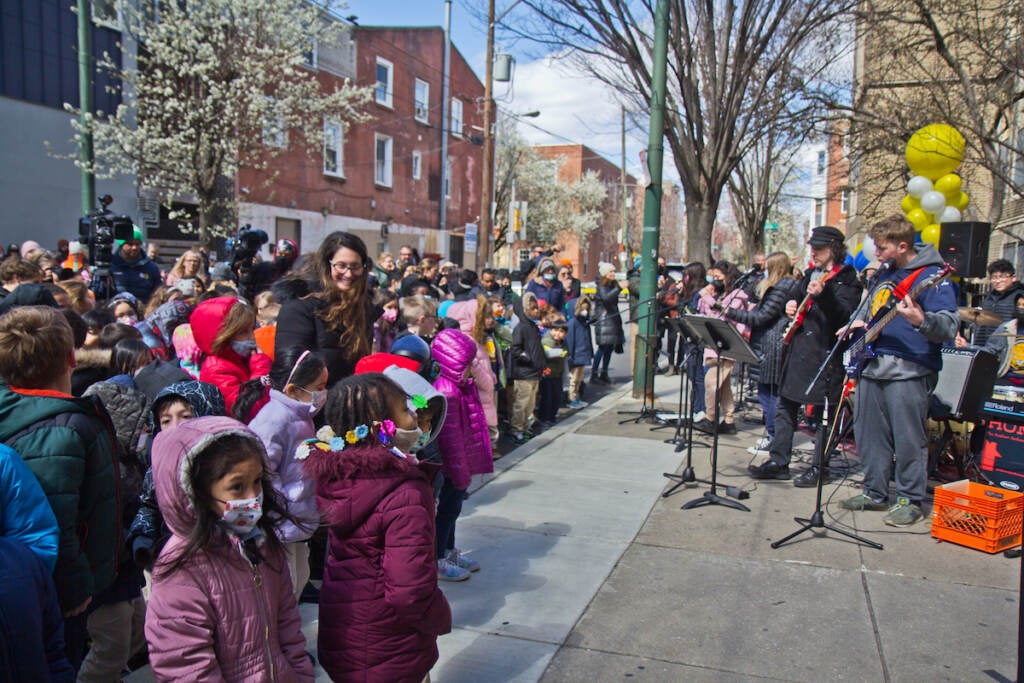
“Andrew Jackson is not someone we should teach Philadelphia students to honor and admire,” read one petition to rename the school. “He represents the worst of this country’s history of enslavement and genocide.”
More than a thousand school and community members provided input on the new name, choosing from four notable Black figures with Philadelphia ties, including Coppin, abolitionist William Still, civil rights leader Barbara Rose Johns, and former Philadelphia Inquirer editor Acel Moore.
“It’s kinda cool that I’m leaving the school [and] that I helped change the name,” said 8th grader Brandon Lau, who was inspired by Coppin’s trajectory breaking barriers and advocating for education access.
After gaining her freedom in childhood, Coppin attended Oberlin College in Ohio and became one of the first Black women in the U.S. to earn a college degree. During her time as a student, she organized evening classes for formerly enslaved people.
She moved to Philadelphia in 1865 to teach at the Institute for Colored Youth — now Cheyney University — and eventually became head principal.
“It has been fun to work with our teachers, the principal, and families to make this change that is meaningful to help us feel connected and excited about coming to school,” Lau said.

Jeffrey Kuhn, a 6th grade teacher at Coppin, said the years-long renaming process was an important learning experience for students.
“It’s not just something you can flip a switch on,” he said. “A lot of work went into this and a lot of input from the community. You can’t just do this on a whim and say, ‘Oh, we want to change the name of a school.’”
It was powerful for students to understand what it took to rename the school, and to participate in the voting process, Kuhn said.
The ceremony included a surprise. Anthony Jenkins, the president of Coppin State University — a historically Black university in Baltimore — announced a new “Philadelphia Pathway” scholarship, which will provide free tuition for Coppin elementary school students after they graduate high school.
“Money should never be the reason that you don’t earn a quality education,” Jenkins said, describing his own path from Washington, D.C. public schools to college, where he was a first-generation student.
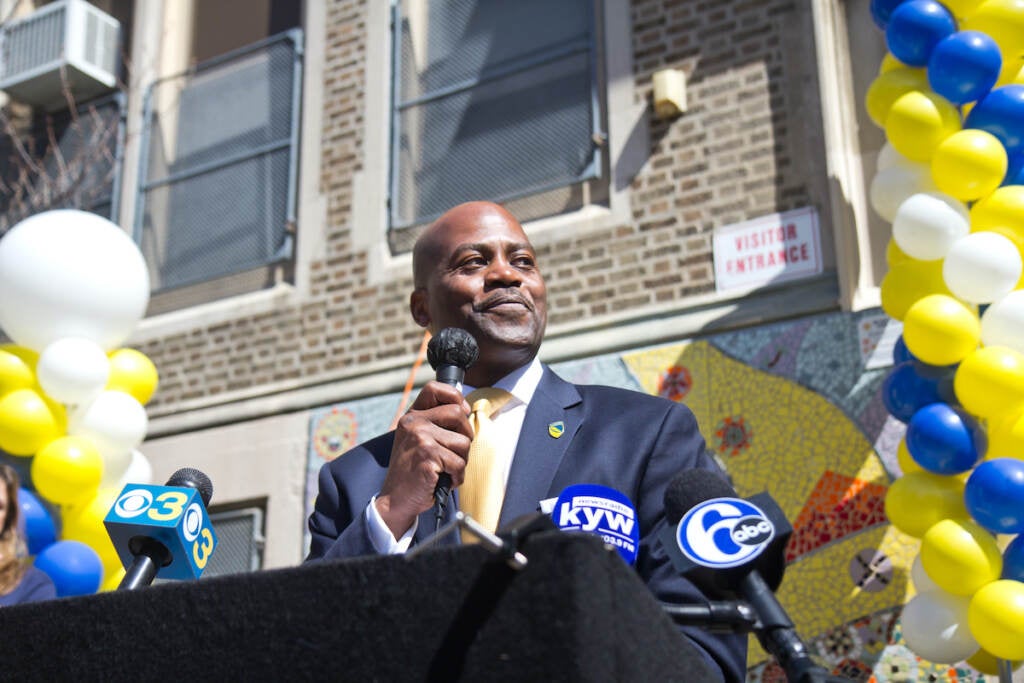
“The same resolve, the same tenacity that drove [Coppin] is in all of you,” Jenkins said, encouraging students to follow her example and “ensure that you make every environment you enter better.”
Kuhn, the 6th grade teacher, was amazed by the scholarship announcement.
“That was big,” he said. “That’s definitely talking points when we go inside to make sure that the kids understand the opportunity that lies ahead of them.”
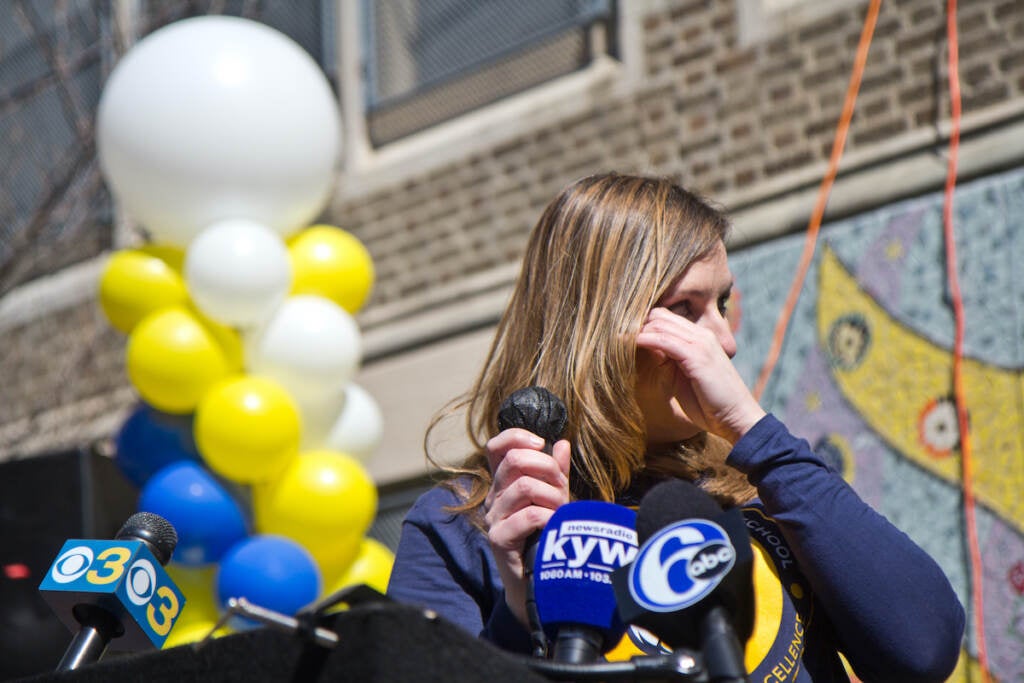
Mayor Jim Kenney and Superintendent William Hite attended the unveiling ceremony. Hite praised the school community for sticking with a process that “wasn’t always easy,” noting that there was some opposition to the name change.
“Our students must be given opportunities to learn in conditions and in school buildings that reflect their values and their identities and make them feel proud and inspired,” Hite said.
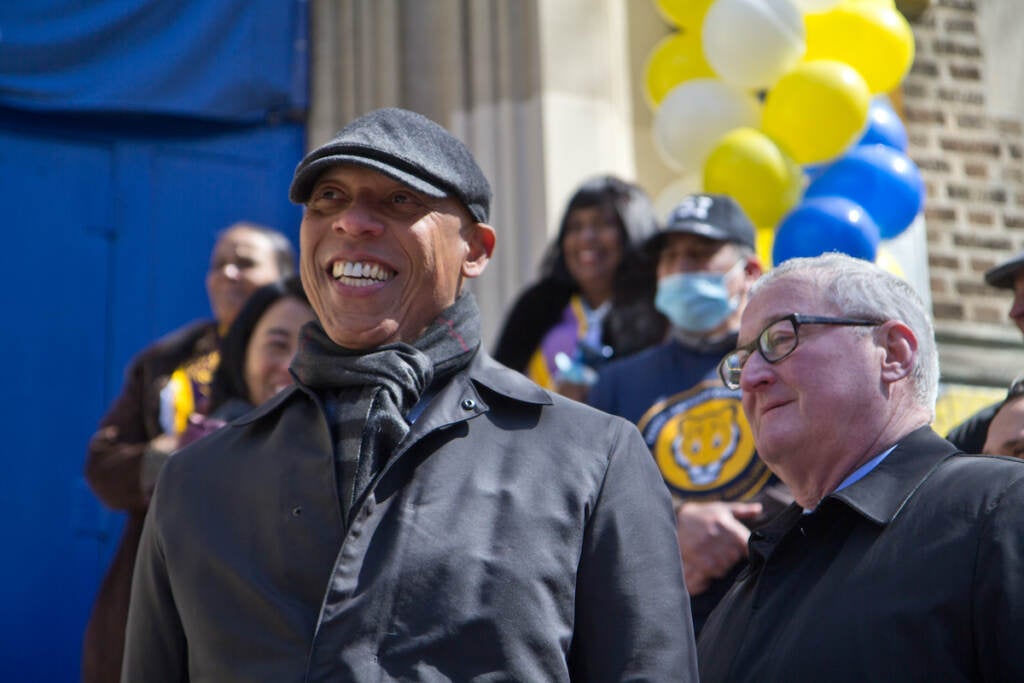
Other Philadelphia schools are reconsidering their names, including Woodrow Wilson Middle School in the Northeast and Philip H. Sheridan Elementary in Kensington.
A March 2020 analysis from Billy Penn found that just 27 of the city’s 345 public and charter schools were named after people of color. Only 18 were named for women, and only six for women of color.
Now, with Fanny Jackson Coppin Elementary, at least one more woman of color has that honor.
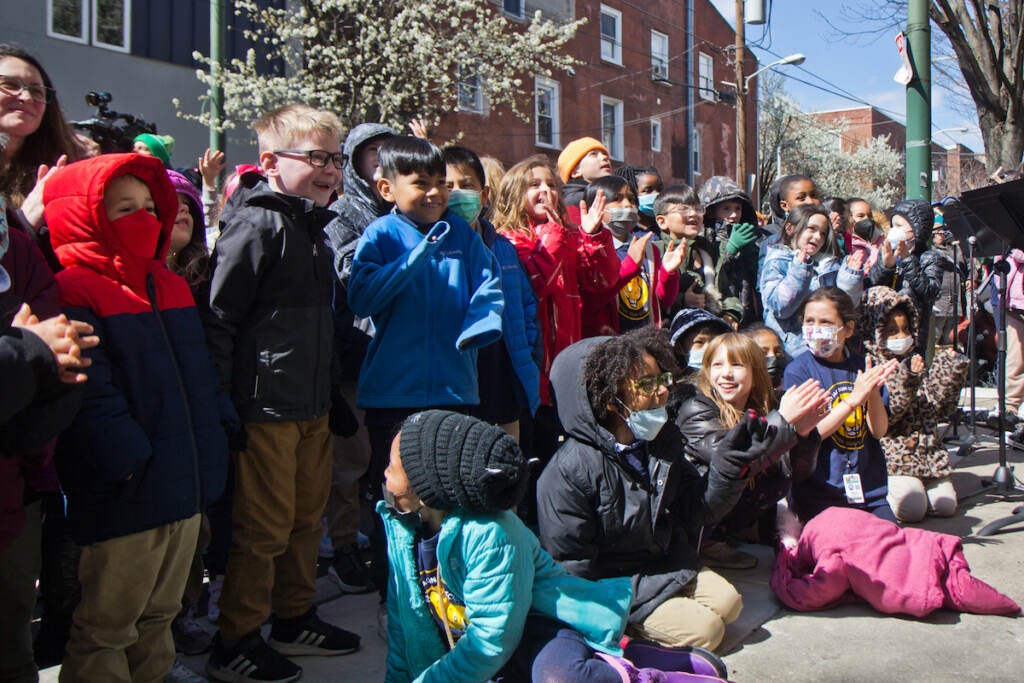

Get daily updates from WHYY News!
WHYY is your source for fact-based, in-depth journalism and information. As a nonprofit organization, we rely on financial support from readers like you. Please give today.




